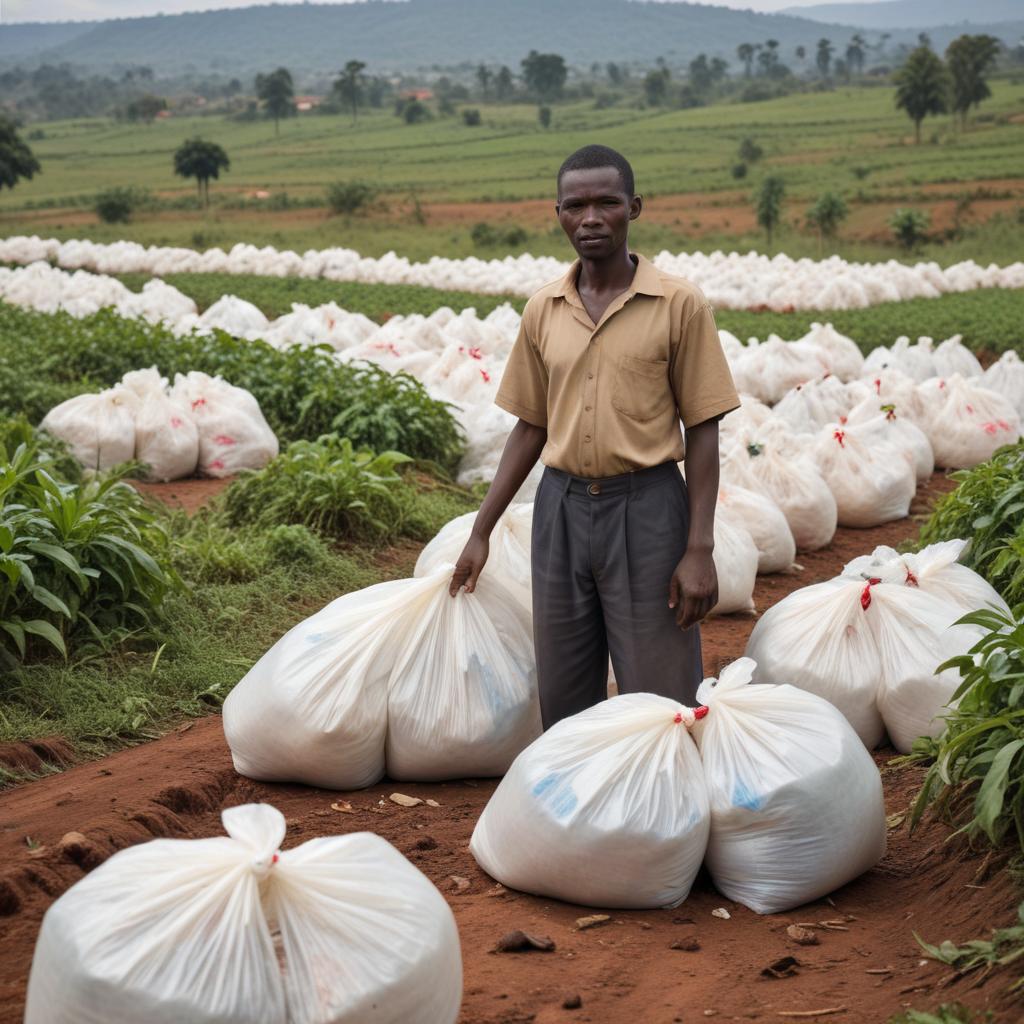A new report reveals the shocking extent of microplastic pollution in farmland, threatening food security and human health. Climate change is worsening the problem, and solutions are urgently needed.
In Uganda's Mbale district, plastic bags, known locally as "buveera," are polluting farmland, impacting coffee production. This problem, long prevalent in Kampala, is now reaching remote areas. Farmers are concerned about the effects on their land. Globally, plastics are increasingly found in farm fields, exacerbated by climate change. Microplastics, often smaller than five millimeters, are altering ecosystems and entering the human food chain, raising concerns about health impacts. A UN report highlights soils as major receptors of agricultural plastics, potentially more polluted than oceans. Experts emphasize the need for major engineering solutions due to the scale of the problem. Microplastics originate from various sources, including agricultural plastics, clothing, medications, and beauty products, sometimes found in fertilizer. While agriculture accounts for only a small percentage of global plastic use, packaging contributes significantly. Studies show microplastics can be absorbed by plants and enter the food chain, raising concerns about long-term health effects. Climate change is worsening the issue by increasing reliance on plastics for crop protection and increasing the breakdown and transport of plastic particles. A recent study showed microplastics can impact plant photosynthesis. Despite a global treaty on plastic pollution being negotiated, solutions are hampered by a lack of political will and the difficulty in tracking plastic waste. Companies are attempting to improve recycling, but challenges remain. Researchers are exploring solutions like biochar filtration to remove microplastics from waterways. However, even farmers who care about soil health often lack resources to address the problem. The situation is particularly challenging for small farmers in developing countries who are most vulnerable to climate change's effects.



